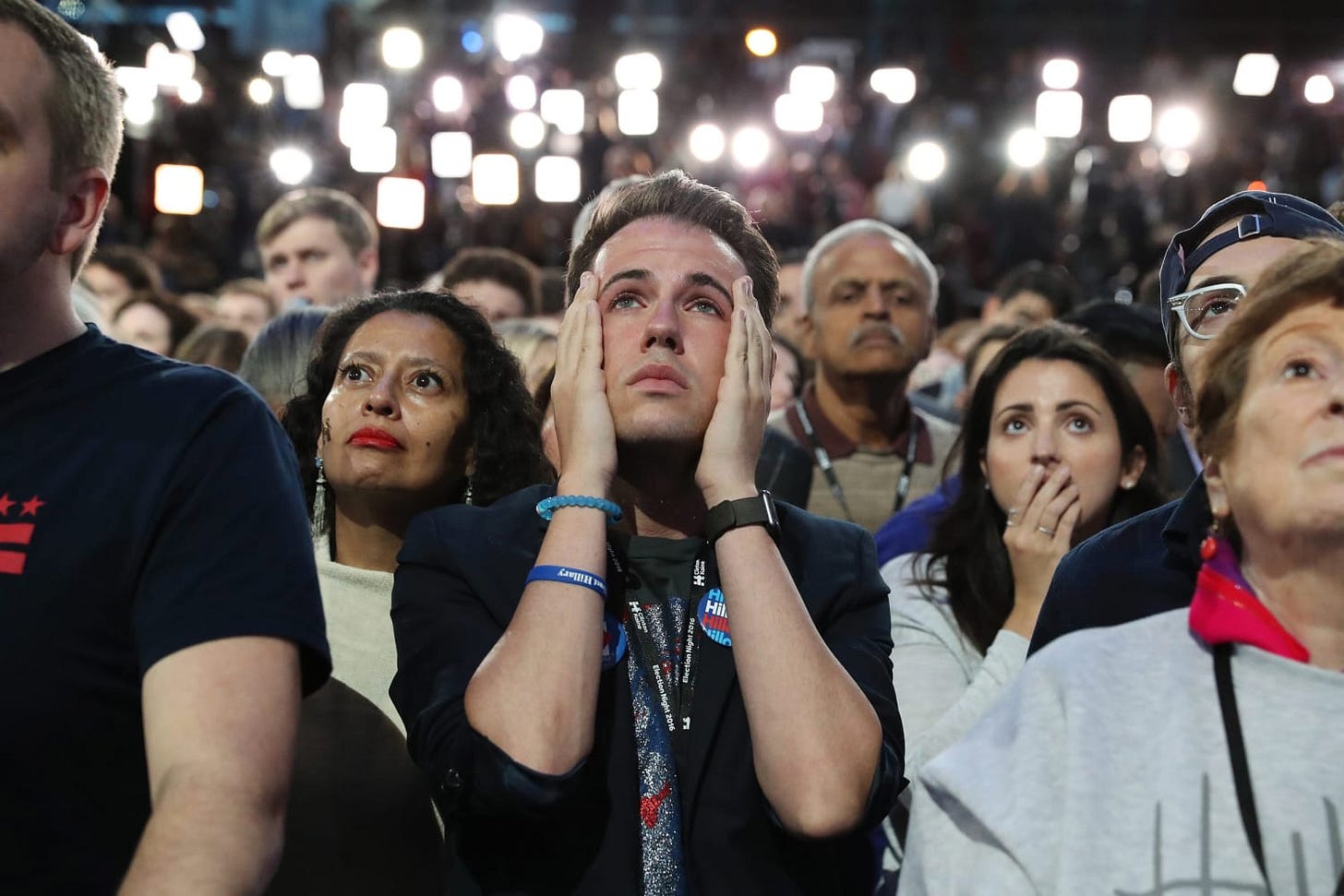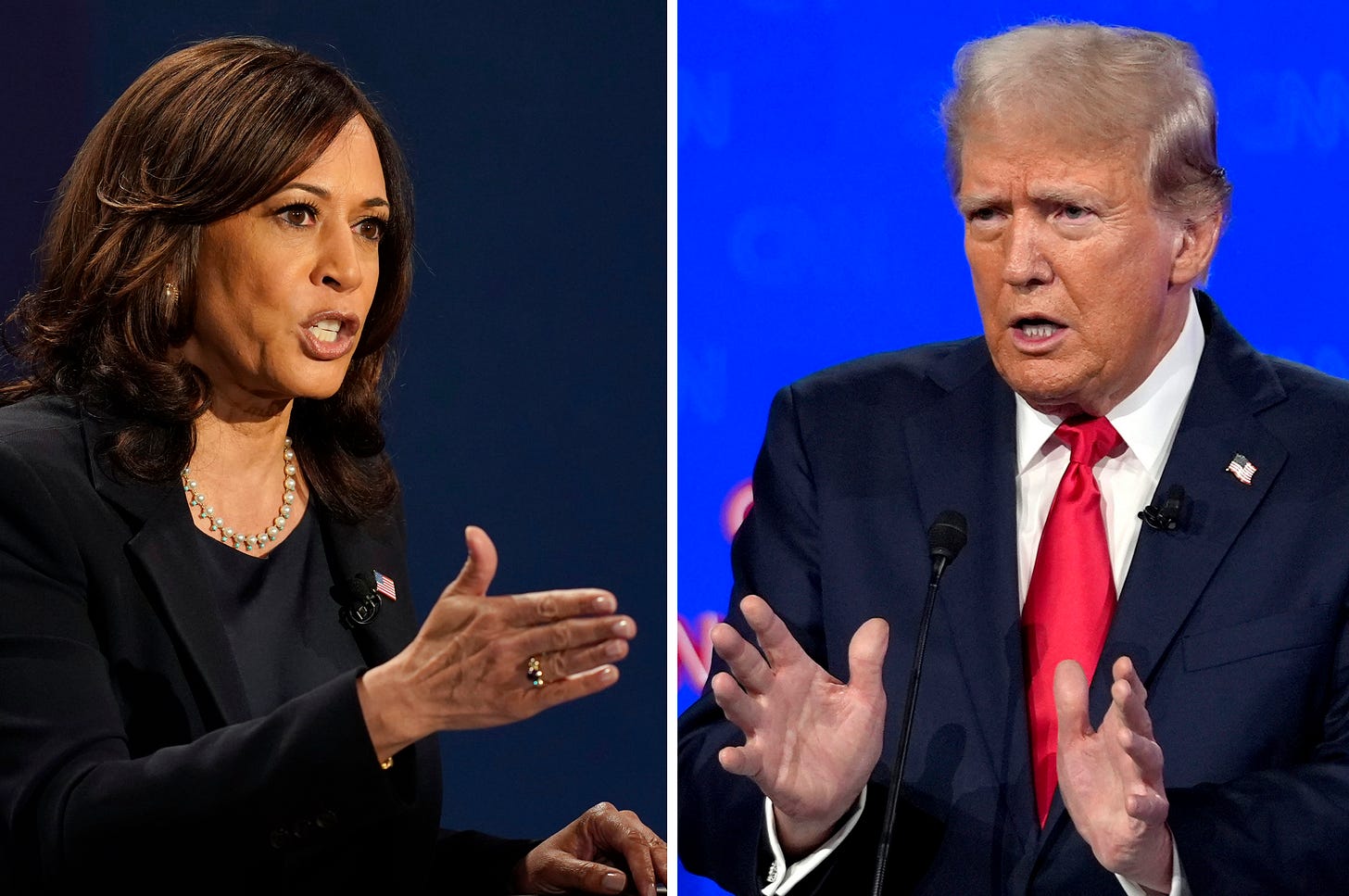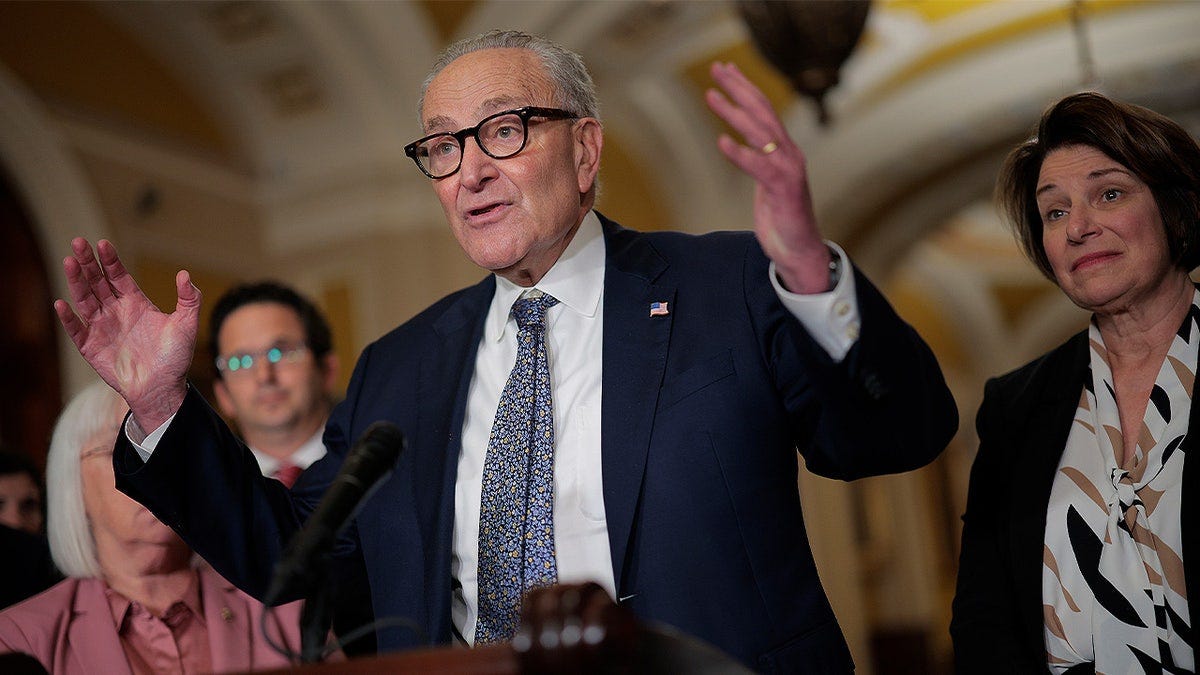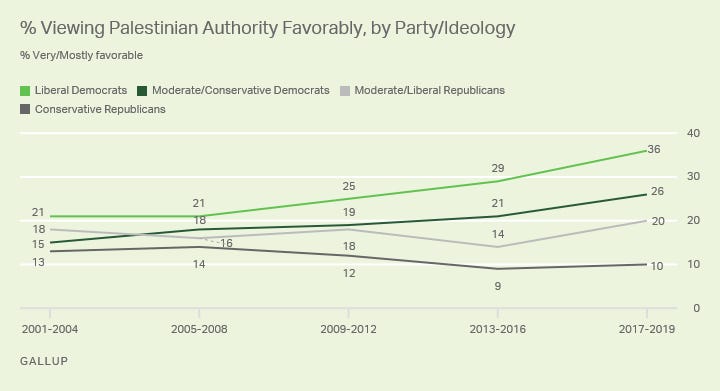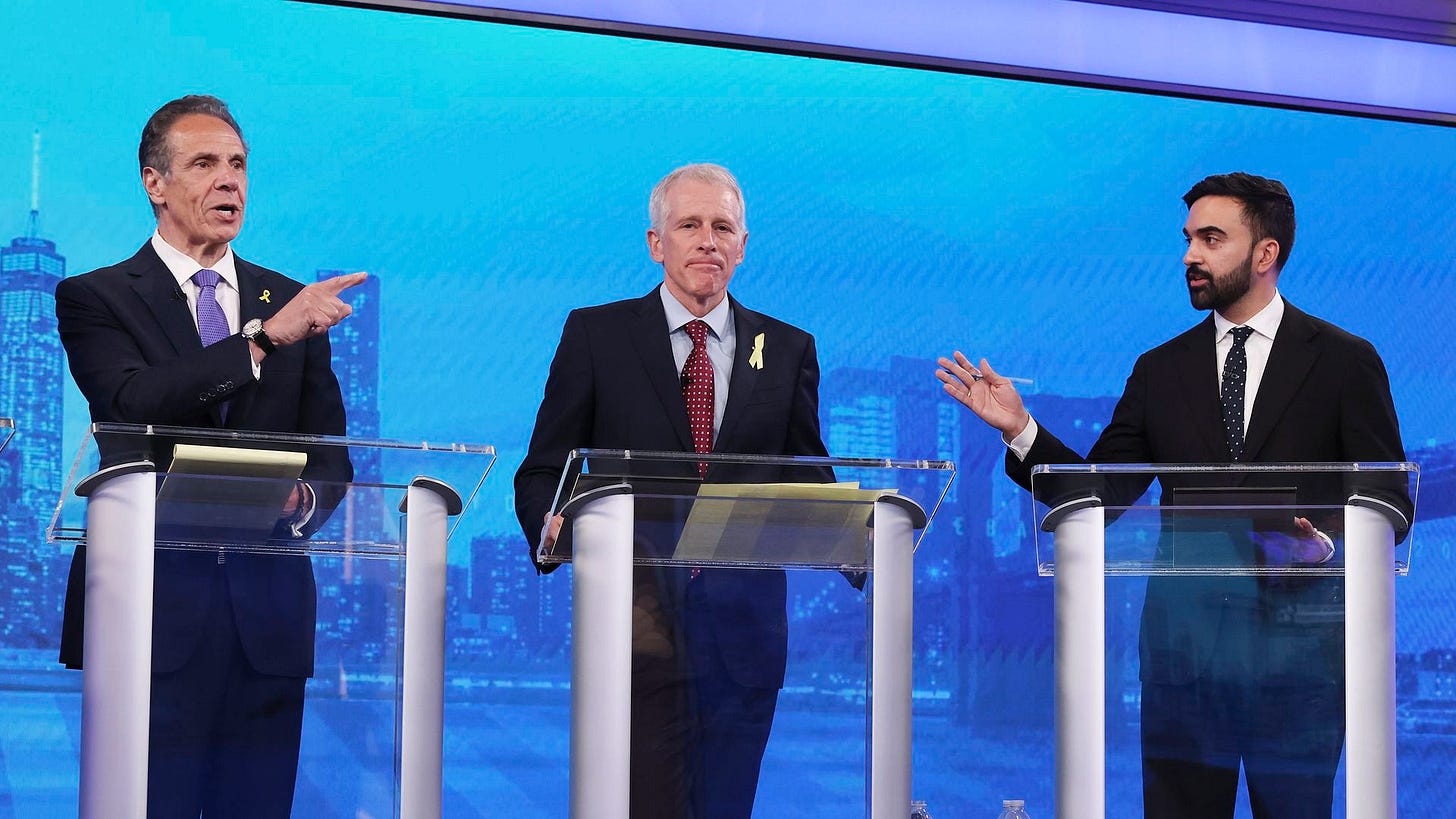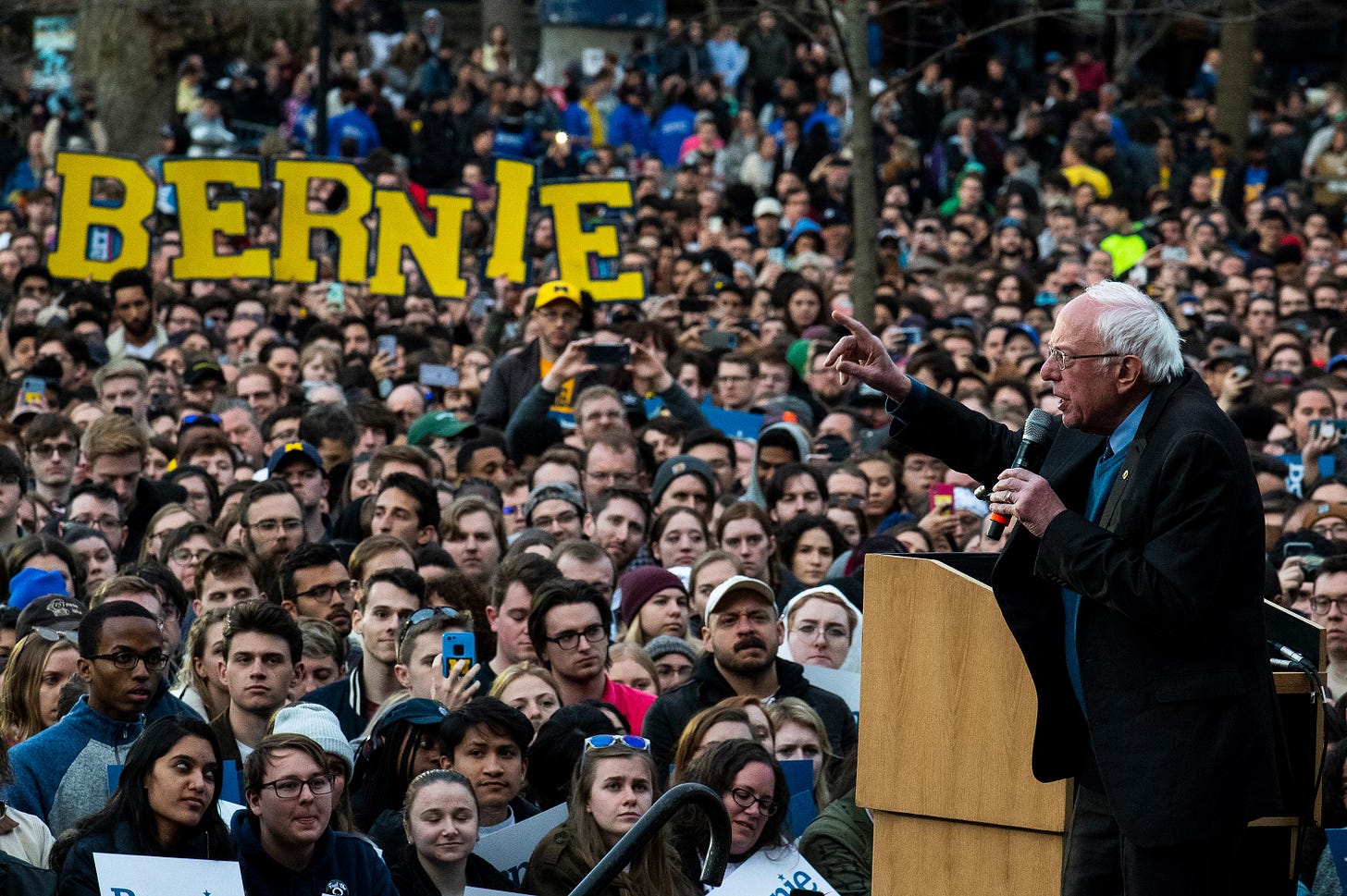Why Not Prove Them Right?
The Case for a Bold Democratic Strategy
If Democrats want a national party that fights for working people, they must first demand a local party that does the same: primary incumbents insulated from their constituents, replace “safe seat” Democrats, and restore representation to those ignored.
The story of American politics in the 21st century is, in no small part, a story of fear. Fear of extremism. Fear of backlash. Fear of “going too far.” For Democrats, this fear has consistently translated into compromise—compromise that dulls their vision, mutes their messaging, and alienates the very voters they need to inspire. The ghost of 2016 still looms large: Donald Trump’s rise was rationalized, in part, by the claim that Hillary Clinton and the Democratic Party overreached in painting Republicans as “extreme.” By branding the entire Right as dangerous, Democrats supposedly gave them cover to coalesce, to dig in, and to paint themselves as the rational counterweight.
Fast forward nearly a decade, and the script has flipped. After the death of Charlie Kirk, the right has leaned into its familiar playbook: casting the left as the true radicals, blaming them for all acts of political violence or unrest, and cherry-picking images of college activists to stand in for the Democratic Party. This isn’t new—it’s a recycled tactic with a fresh coat of paint. But here’s the crucial point: if Democrats are going to be called extreme no matter what, why not prove them right?
I don’t mean in the caricatured sense that Republicans peddle on Fox News. I mean by embracing a bold, unapologetic vision rooted in principle and aimed at mobilizing a base that is tired of “Republican-lite” policy. Imagine a Democratic Party that doesn’t just timidly back incremental reforms but instead champions sweeping proposals: full support for undocumented immigrants, unapologetic defense of trans inclusion in sports and society, dissolution of monopolistic corporations, and a clear recognition of both the genocide in Gaza and the legitimacy of a Palestinian state. These are not radical fever dreams—they are principled stances, many of which have strong support among Democratic voters, young people, and marginalized communities. They are also the kind of positions that can energize a base rather than depress turnout.
Each time Democrats retreat on policy, they reinforce the idea that Republicans’ moral framing is correct—what begins as compromise ends up as tacit endorsement.
The Problem of Milquetoast Politics
Kamala Harris’s loss in 2024, and her subsequent rationalizations, reveal the danger of trying to split the difference in an era where voters crave clarity. Harris, like many mainstream Democrats, attempted to triangulate between progressives and moderates, hoping to build a coalition broad enough to overcome Republican turnout. Instead, she inspired few and convinced even fewer. This is not a new problem. The party’s centrist wing has long bet on pragmatism over passion, technocracy over moral clarity. The result? Candidates who sound smart in think tank panels but uninspiring at the ballot box.
This cautious instinct has defined Democratic politics for decades. Rather than staking out a clear moral argument, the party has often met Republican extremism with half-measures and apologies. Nowhere is this clearer than on immigration. Faced with right-wing demagoguery about “open borders,” Democrats have increasingly validated the premise that immigration is a problem to be contained rather than a reality to be managed humanely. Each concession—whether through tougher asylum restrictions, expanded border surveillance, or rhetoric about “orderly migration”—reinforces the idea that Republicans were right all along. When one side capitulates on policy, the public assumes the other must have the correct one. Each time Democrats retreat on policy, they reinforce the idea that Republicans’ moral framing is correct—what begins as compromise ends up as tacit endorsement.
The irony is that these retreats win no converts. Voters who want cruelty will always prefer the party that promises it without guilt, while voters who want compassion will see no reason to support a party that apologizes for its own values. The politics of triangulation leaves Democrats stranded in the middle—too timid to inspire hope, too compromised to command respect. Contrast this with the Republicans. For all their policy bankruptcy, they understand the value of principled leadership. Trump’s appeal was not grounded in policy detail but in a simple, audacious promise: to tear down the system and “Make America Great Again.” That kind of clarity—however destructive—moves voters.
Democrats, by contrast, have spent years playing defense, too worried about sounding “radical” to articulate their own equally bold vision. By internalizing the right’s talking points, they’ve helped shift the political center of gravity further rightward. A party that once stood for the moral expansion of America’s promise now struggles to defend the very idea of inclusion. In the vacuum left by hesitation, cruelty begins to look like conviction—and conviction, in politics, almost always wins.
Democrats who continue to run from the label of “radical” might look to Queens for an uncomfortable truth: the voters they fear alienating are the very ones waiting to be inspired.
The “Extremism” Trap
Harris’s 2024 campaign repeated a mistake that has haunted Democrats since 2016: mistaking moderation for safety. Like Hillary Clinton before her, Harris tried to present herself as the adult in the room—the steady hand who would restore normalcy after Trump’s chaos. Clinton had labeled Trump “dangerously extreme,” confident that voters would recoil from his vulgarity. But the problem was that Trump had already redefined what counted as “normal.” His cruelty, his contempt for norms, even his blatant corruption—none of it disqualified him. To his supporters, it made him authentic. When Clinton called him extreme, it only confirmed to them that she stood outside the “real America” he claimed to represent.
Trump learned from that dynamic and weaponized it. Throughout his presidency and beyond, he painted Democrats as “radical leftists,” “open-borders globalists,” and “enemies of the people.” Every time he did so, the media echoed the frame, and Democrats scrambled to deny it. The effect was cumulative: by constantly insisting they were not extreme, Democrats validated the idea that there was something radical to deny. When Harris promised to govern as a “pragmatic unifier,” she repeated that same defensive instinct. Her campaign message—essentially, “I’m not Trump”—accepted his premise that boldness itself is dangerous.
The right’s accusations of extremism are not evidence-based—they are tactical. Republicans rarely cite mainstream Democratic policies; instead, they elevate out-of-context footage of student activists, cherry-pick slogans from fringe protests, and present them as the heart of the party. It’s the “Charlie Kirk effect,” the deliberate conflation of the fringe with the mainstream to redefine the public perception of the left. And each time Democrats respond with reassurance rather than conviction, the political center of gravity shifts further right.
But if you’re going to be branded as extreme regardless, why not make it worth the label? Imagine if instead of running from the accusation, Democrats leaned into it. Instead of saying, “No, no, we’re moderate, we promise,” they said, “Yes—we believe in justice, equity, and accountability, and if that makes us radical, so be it.” That rhetorical pivot would not only disarm Republican attacks but reframe “extremism” as a synonym for moral courage. Because in a political landscape where cruelty passes for conviction, compassion will always sound radical—and that’s nothing to be ashamed of.
Affordability is not a policy debate—it is a question of justice and dignity. Republicans speak to grievance; Democrats could speak to hope.
Proposals That Inspire
The Republican Party has long understood that politics is less about policy details than about moral storytelling. Their proposals—no matter how cruel—are framed as moral imperatives: defending borders, protecting children, preserving freedom. Democrats, meanwhile, approach each issue like an exercise in public relations. They poll-test their language, hedge their commitments, and search for phrasing that offends no one. But in doing so, they inspire no one. The right declares; the left negotiates. And in politics, the side that declares almost always wins.
Immigration. Republicans frame immigration as an existential threat: a nation under siege by criminals, smugglers, and outsiders. Their rhetoric is apocalyptic—and effective. Democrats, instead of countering this with moral conviction, try to sound “balanced.” They express sympathy for Dreamers, cautiously endorse pathways to citizenship, and then rush to assure voters they support “border security.” This triangulation satisfies no one. It neither persuades conservatives nor energizes the base. A party confident in its values would state the obvious: undocumented immigrants are not a problem to be managed, but people to be protected. They work, pay taxes, and sustain industries most Americans rely on. To defend their right to stay is not extremism—it’s an affirmation of human dignity. Even polling supports this moral clarity: a majority of Americans, and an overwhelming share of younger voters, favor pathways to citizenship. Republicans tell a story of fear; Democrats could tell a story of belonging.
Trans rights. Here again, Republicans have mastered the politics of moral panic. They cast themselves as defenders of “women’s sports” and “parental rights,” while their actual goal is to erase trans existence from public life. Democrats respond with caution, splitting hairs over age limits, sports participation, or medical procedures. Each qualification feeds the Republican narrative that something sinister needs to be contained. What if, instead, Democrats said clearly: trans people belong—everywhere. In sports, in schools, in society. Full stop. The point is not that every voter will agree, but that voters will finally see a party willing to stand for something larger than a focus-grouped talking point.
Corporate power. Republicans worship capital while pretending to hate elites. Democrats, meanwhile, issue stern lectures about “responsible regulation” and “stakeholder capitalism”—phrases that sound like they were invented in a McKinsey workshop. But the problem isn’t that corporations need better manners; it’s that they wield too much power. Americans know this. Polls consistently show bipartisan support for breaking up monopolies, taxing the ultra-rich, and curbing corporate influence. So why not say it plainly? Break up Amazon. Split Meta. Treat antitrust not as punishment but as the restoration of democracy and competition itself. Republicans sell rebellion against government; Democrats could sell rebellion against concentrated power.
Affordability. Bread-and-butter issues remain the ground where elections are won—and lost. Republicans have turned inflation, housing costs, and grocery prices into moral arguments about decline, family, and the “American Dream.” Democrats respond with spreadsheets. They tout inflation metrics and supply-chain fixes that sound like corporate earnings calls. But voters don’t want to hear about “core CPI”—they want to hear that someone understands why rent feels impossible and groceries feel like luxury goods. Democrats could reclaim this terrain by centering affordability as a moral promise: that no one working full time should struggle to live with dignity. Imagine running on rent stabilization, universal childcare, and debt-free education—not as technocratic policy planks, but as the moral foundation of a fair society. Affordability is not a policy debate—it is a question of justice and dignity. Republicans speak to grievance; Democrats could speak to hope.
Healthcare. On healthcare, the divide in strategy is almost comically consistent. Republicans attack government programs as tyranny, then quietly rely on the popularity of Medicare to protect their own voters. Democrats, instead of claiming moral ownership of universal care, get lost in jargon about “public options” and “market efficiency.” But healthcare is not a consumer good—it’s a human right. Every year of compromise keeps millions uninsured and millions more bankrupt from medical bills. Polling shows majority support for universal coverage, even among independents. The party could lead with that: not “access to affordable care,” but guaranteed healthcare for every American. Healthcare is not a consumer good—it is a human right fulfilled, not a market compromise. Republicans turn fear into fuel; Democrats could turn compassion into power.
Foreign policy. On Israel-Palestine, the Republican message is blunt: Israel is good, Palestinians are terrorists, end of discussion. Democrats try to “walk the line,” expressing sympathy for Palestinian civilians while reaffirming Israel’s “right to defend itself.” The result is moral incoherence—enough to alienate progressives without satisfying moderates. The courage to name what’s happening in Gaza—a genocide—and to call for Palestinian statehood would not be extremism. It would be honesty. A 2024 Gallup poll found that, for the first time, more Democrats sympathized with Palestinians than Israelis. The ground has already shifted; the leadership simply refuses to notice.
Across every issue, the pattern repeats. Republicans define the moral battlefield, and Democrats fight with disclaimers. The future belongs to the side willing to say what it believes without apology. Across these policy areas, the pattern is clear: hesitation cedes the moral high ground to the right. Assemblyman Zohran Mamdani demonstrates the alternative in action.
Mamdani as a Case Study
Assemblyman Zohran Mamdani offers a living rebuttal to the Democratic obsession with moderation. Representing Astoria, Queens—a district diverse in both class and culture—Mamdani didn’t run as a watered-down progressive or a Democrat-in-name-only. He ran as a democratic socialist, openly and unapologetically. His platform was not crafted to appease pundits or placate donors. It was designed to meet material needs: tax the rich, cancel rent, fund public housing, expand transit, and make healthcare universal. To the political establishment, this read as “radical.” But to voters drowning in rent debt and stagnant wages, it sounded like common sense.
Mamdani understood what national Democrats still refuse to learn: that “radical” is a label invented by those who benefit from the status quo. Instead of running from it, he turned it on its head. When attacked for his rent-cancellation proposal, he didn’t soften the language or retreat to “affordable housing initiatives.” He said plainly that no one should be evicted during a crisis. When opponents called his tax plan radical, he reminded them that billionaires had grown richer during the pandemic while essential workers risked their lives for poverty wages. He didn’t apologize for caring about affordability, inclusion, or welfare—he reframed them as the moral floor of a civilized society.
This clarity resonated. Mamdani defeated a well-connected incumbent and later fended off challengers backed by deep-pocketed real estate interests. His campaign proved that moral conviction can be politically viable—not in spite of, but because of, its honesty. Voters may not agree with every policy detail, but they recognize authenticity when they see it.
Contrast that with figures like Andrew Cuomo, who spent years calibrating his politics to please donors and appear “reasonable.” He postured as a tough, pragmatic centrist while governing through triangulation and control. Cuomo’s politics were built on performance; Mamdani’s were built on steadfast principle. One dissolved under scrutiny, the other grew stronger.
The lesson is clear: boldness pays. Mamdani demonstrates that conviction is not political suicide—it’s political oxygen. In a climate where fear has replaced vision, his unapologetic socialism stands as proof that moral clarity can still win elections. Democrats who continue to run from the label of “radical” might look to Queens for an uncomfortable truth: the voters they fear alienating are the very ones waiting to be inspired.
Rethinking “Electability”
The central counterargument to this entire thesis is electability. Critics insist that Democrats who propose bold policies will alienate moderates, independents, and suburban voters—that America simply “isn’t ready” for anything beyond incremental reform. But this argument has been tested, and it doesn’t hold up.
Mamdani’s victory in Queens was not an accident or a fluke—it was proof that voters reward clarity over calculation. His campaign didn’t hide from the word “socialism,” it owned it. And far from repelling voters, his honesty inspired them. The voters most often dismissed as “unelectable” supporters—the renters, the immigrants, the disillusioned—became the backbone of a new political coalition. Mamdani’s success reveals a larger truth: when Democrats speak directly to people’s material conditions, the fear of ideological backlash dissolves. Bread-and-butter issues are not radical when you’re the one struggling to pay rent.
History bears this out. Franklin Delano Roosevelt didn’t win by promising to fine-tune capitalism—he promised to rebuild it. His New Deal was condemned as socialism by his opponents, yet it delivered the most stable and prosperous middle class in American history. Lyndon Johnson faced southern segregationists who called him an extremist, yet he pushed forward with the Civil Rights Act and the Great Society. Both men took enormous political risks, faced fierce backlash, and still won sweeping victories because voters believed they were fighting for them, not for balance sheets or bipartisan respectability.
Even in the modern era, boldness has proven its influence. Bernie Sanders never won the presidency, but his campaigns permanently altered the political landscape. Medicare for All, tuition-free college, and the $15 minimum wage—once fringe ideas—are now mainstream Democratic priorities. Alexandria Ocasio-Cortez, Summer Lee, and other progressive candidates have carried that same message into office, often defeating establishment-backed centrists who were supposed to be “safer” bets. The record shows that conviction expands the electorate; caution shrinks it.
The myth of electability persists because it flatters the fears of party elites. It imagines the average voter as a skittish moderate who must be carefully courted, rather than a frustrated citizen who wants someone to fight for them. But the data tell another story. Millennials and Gen Z—now the largest voting bloc in America—are more progressive on nearly every issue than their parents. They are also the least likely to vote. The Democratic Party’s central challenge, then, is not persuading moderates but mobilizing nonvoters. And mobilization requires passion, not management. It requires a vision big enough to make politics feel worth caring about again. Bold policies cannot succeed if entrenched incumbents keep blocking them. The first step in mobilizing voters is to ensure Democrats actually represent their constituents—a task that begins in primaries, not general elections.
Poll after poll shows younger Americans disillusioned with both parties, but supportive of progressive ideas: universal healthcare, student debt relief, aggressive climate action, higher taxes on the wealthy. They are not waiting for moderation—they are waiting for moral courage. “Electability,” in other words, is not about who offends the fewest people. It’s about who inspires the most. And history has shown, again and again, that inspiration—not caution—is what wins elections.
The future belongs to those who claim it with principled leadership and steadfast values.
The Stakes Ahead
Republicans understand this. They know that conviction wins elections, which is why they will keep calling Democrats “radical” no matter how cautious the platform becomes. The GOP’s message discipline comes not from truth but from moral clarity—and that clarity wins. They know that “socialist” is just a label, and that if Democrats keep running from it, they’ve already lost.
The real question is not whether Democrats will be called radical, but whether they will have the courage to act on their values when they are. If the future of the party is more Kamala Harrises—careful, triangulating, allergic to risk—then the future is bleak. A politics built on fear cannot compete with a movement built on faith, no matter how misplaced that faith may be. But if the future is more Zohran Mamdanis—principled, bold, unapologetic—then there is hope, not just for the party, but for the idea that democracy can still mean something.
This is not a call for recklessness. It’s a call for courage. Courage to say what you believe, even when consultants say it will cost votes. Courage to defend policies that make people’s lives better, even when billionaires threaten to close their wallets. Courage to recognize that moderation for its own sake is not pragmatism—it’s surrender.
The stakes are not merely electoral; they are moral. A party that no longer believes in anything cannot persuade anyone to believe in it. And yet, the inverse is also true: when Democrats remember what they stand for—when they speak not in polling memos but in principles—they have always won. That is the lesson of Roosevelt, of Johnson, of every movement that ever bent history toward justice. The future belongs to those who claim it with principled leadership and steadfast values.
So why not prove the right correct—not in their caricature, but in the way that matters? Why not be radical in courage, in principle, in compassion? That is how you build a movement. That is how you win.
Conclusion: Owning the Future
The right is going to call Democrats extremists no matter what. That’s a given. The question is whether Democrats will continue to waste energy denying the charge—or whether they will embrace it and redefine it. Extremism, in the mouths of Republicans, simply means conviction. It means daring to believe in something beyond the status quo. If Democrats can learn that lesson, they can stop being trapped by the right’s narratives and start writing their own.
But conviction begins at home. If Democrats want a national party that fights for working people, they must first demand a local party that does the same: primary incumbents insulated from their constituents, replace “safe seat” Democrats, and restore representation to those ignored. It means replacing “safe seat” Democrats who triangulate out of habit with candidates who actually believe in the values they campaign on. The movement cannot start in Republican districts—it has to start by transforming the Democratic Party itself.
If some so-called moderates are so eager to imitate Republicans, then let them prove it—by flipping Republican districts instead of blocking progress in Democratic ones. The rest of us have a different task: to rebuild a party that stands for justice, affordability, inclusion, and dignity for all.
So why not prove the right correct—not in their caricature, but in the way that matters? Why not be radical in courage, in principle, in compassion? That is how you build a movement. That is how you win.


